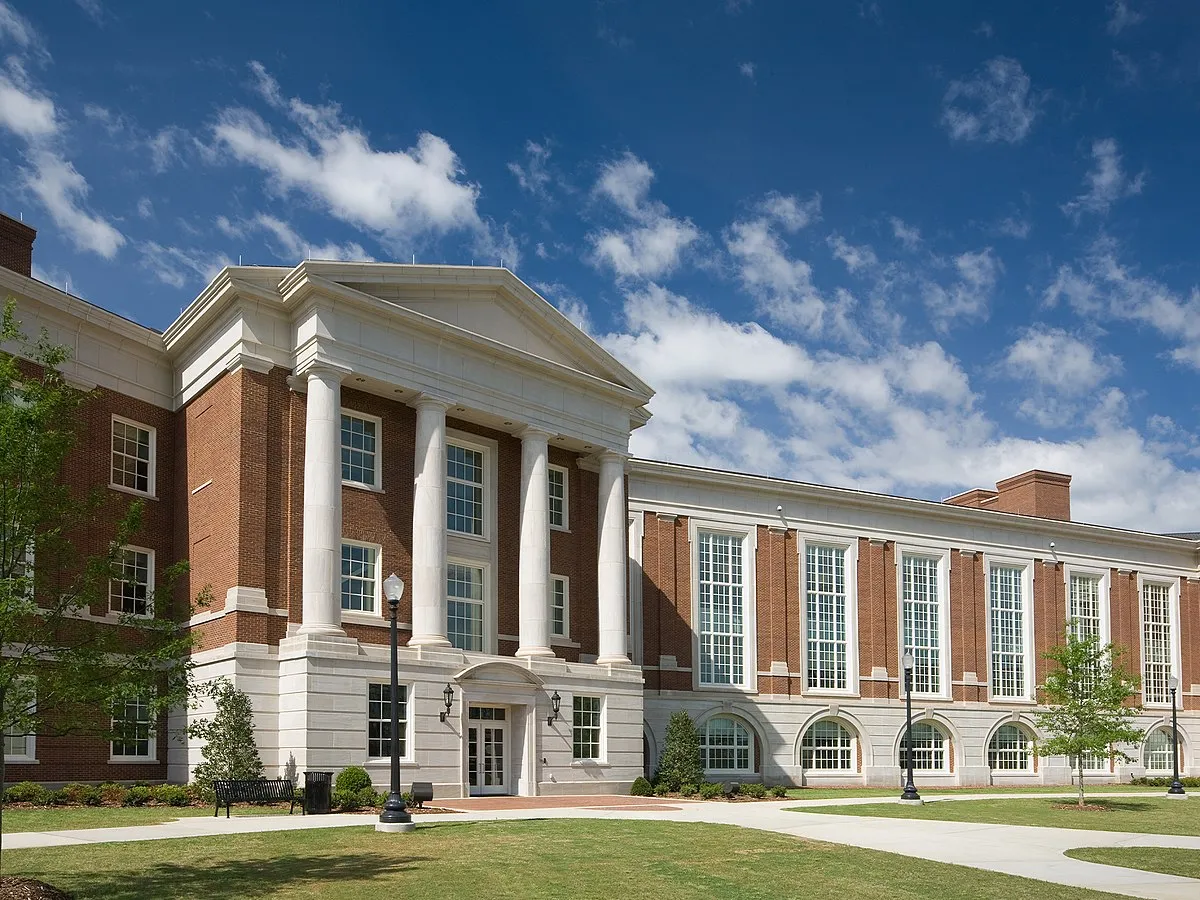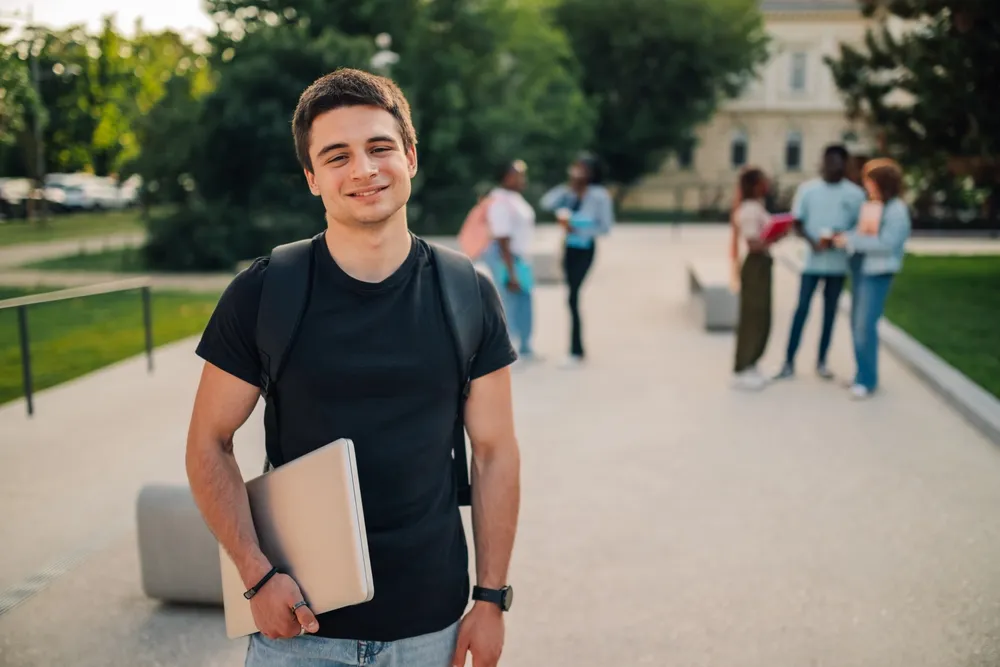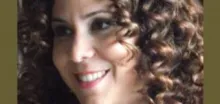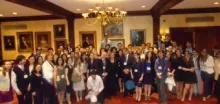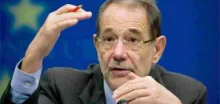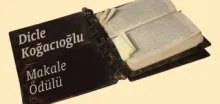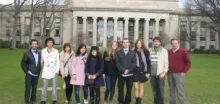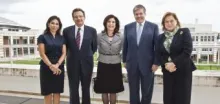
Held by Sabancı University in association with the Brookings Institution, this year’s Sakıp Sabancı Conference featured Former NATO Secretary-General and Former EU High Representative for Common Foreign and Security Policy Dr. Javier Solana. In his speech titled “Turkey, Europe and the World in 2011,” Dr. Solana expressed his opinions on the current state of affairs across the world and Turkey’s EU-accession process. Solana said it was a personal dream of his for Turkey to become an EU member.
The seventh Sakıp Sabancı Conference organized by Sabancı University in association with the Brookings Institution was held on Wednesday, May 4th in Washington, D.C. The keynote speaker at this year’s conference was Former NATO Secretary-General and Former EU High Representative for Common Foreign and Security Policy Dr. Javier Solana. In his speech titled “Turkey, Europe and the World in 2011,” Solana discussed Turkey-EU relations and Turkey’s process for EU accession.

The opening speech was given by Sabancı University Board of Trustees Chair Güler Sabancı, who explained that this conference series was being held in honor of the late Sakıp Sabancı on issues that commemorate his commitment to freedom of expression and association, the free market, free enterprise, and his dedication to leaving a better world to future generations. Also commenting on current issues, Sabancı said, “The world is passing through a time when concepts like freedom of thought and democracy are being tested once again globally. Amid these uncertainties, Turkey strives to be a beacon of stability in its region. With its secular democracy, rapidly-growing economy, and strong civil society, it continues to set a good example for its neighbors.” Güler Sabancı then welcomed Dr. Javier Solana to the lecture to discuss the difficulties and opportunities that are awaiting Turkey.
EU should open its borders
Former NATO Secretary-General and Former EU High Representative for Common Foreign and Security Policy Dr. Javier Solana discussed the EU from economic and political standpoints. Arguing that the EU was moving backwards in terms of competitiveness, Solana said, “By 2050, EU’s workforce will have reduced by 70 million, which will be detrimental to the Union’s economy. Europe should open its borders to prevent this.”
Diversity is the destiny of EU
Also discussing the issue of immigration, Solana noted that immigration was an important social driving force of cultural diversity in Europe and a source of richness, arguing that cultural diversity is ingrained in Europe.

“Europe should develop strategic partnerships with Turkey to resolve issues in the Mediterranean and the global energy problematic, while developing its mutual relationships with Turkey.”
Solana argued that Turkey maintained a strategic position and policies in the current state of affairs, and that the strategic advantages Europe could develop with Turkey could contribute to the solutions offered to global policy.
“Turkey’s EU membership is my dream.”
To conclude his speech, Solana said that the world was passing through a difficult, hopeful but uncertain period, and that Europe and Turkey needed to work together at this time, which meant the full accession of Turkey to the EU. Solana ended by saying, “Turkey’s EU membership is my dream.”

Speaking after Solana’s lecture, Brookings Institution Vice President and Sabancı University International Board of Overseers Member Kemal Derviş said he agreed with Solana’s views on Turkey’s EU membership. Kemal Derviş argued that while Turkey was ambitious to become a member to the EU, it was also “in a position to question what type of Europe it should join.” Derviş also said that, instead of positioning itself as a superpower, Europe should see itself as an actor striving for the future of a better globalization.
The conference was broadcast live from Washington, D.C., and was televised at the Sabancı University campus in Tuzla. The Turkish leg of the conference was hosted by Sabancı University President Professor Nihat Berker and moderated by Sabancı University Faculty of Arts and Social Sciences professor Ayşe Kadıoğlu.



